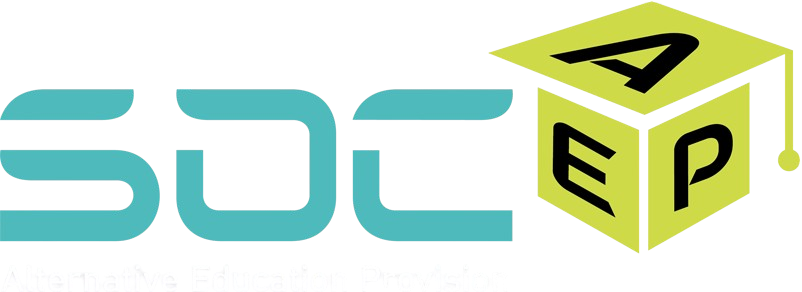Introduction
Technical expertise alone is not enough to secure and sustain a rewarding career in today’s rapidly evolving job market. Employers are increasingly seeking candidates who possess strong employability skills—the essential competencies that enable individuals to thrive in the workplace. These include communication, teamwork, adaptability, problem-solving, and leadership, among others.
Whether you’re a student preparing for your first job, a professional trying to upskill, or an employer seeking job-ready people, understanding why employability skills training is necessary for success is key. In this blog, we’ll look at the importance of employability skills training, answer common questions, and offer actionable advice to help you stand out in today’s competitive job market.
What Are Employability Skills?
Employability skills, often known as soft skills, are transferable abilities that impact how well a person does in the job. These abilities supplement technical knowledge and assist individuals in navigating problems, working collaboratively, and adapting to changing work contexts. Some of the most sought-after employability skills include:
- Communication abilities – This include both verbal and written communication in order to successfully transmit ideas.
- Teamwork and collaboration- It entails working well with others to achieve common goals.
- Problem-solving and critical thinking – The ability to analyze issues and devise solutions.
- Time management- It entails effectively managing tasks and fulfilling deadlines.
- Adaptability and resilience- It entail responding to change and overcoming hurdles.
- Leadership and initiative- These involve accepting responsibility and motivating others.
- Digital literacy- This entails navigating current technologies and online tools.
- Emotional intelligence- It refers to the ability to understand and effectively manage emotions.
- Negotiation and Persuasion- These abilities supplement technical knowledge and assist individuals in navigating problems, working collaboratively, and adapting to changing work contexts.
Why is Employability Skills Training Essential?
1. Bridging the Gap between Education and Employment
Many graduates and job seekers struggle to make the transition from college to employment because they lack practical skills. Employability skills training gives the real-world competencies required to negotiate workplace dynamics with confidence.
2. Improving Workplace Readiness
According to a Confederation of British Industry (CBI) report, over 50% of employers value employability skills over academic diplomas. Training enables candidates to satisfy these expectations by gaining workplace-ready skills.
3. Increasing Confidence and Professionalism
A lack of employability skills can cause uncertainty and insecurity during job interviews and professional situations. Training enables people to present themselves successfully, respond confidently to obstacles, and communicate professionally with coworkers and clients.
4. Increasing Job Opportunities and Career Development
Employers reward people who can think critically, communicate well, and work well together. Investing in employability skills training improves career chances and opens the door to promotions and leadership opportunities.
5. Increasing adaptability in a Changing Job Market
With rapid advances in artificial intelligence (AI), automation, and remote work, adaptability is more important than ever. Training helps people stay competitive by instilling a sense of continual learning and flexibility.
6. Increasing Leadership Potential
Leadership qualities are important at all levels of employment, not just for managers. Individuals who receive training can improve their decision-making, delegating, and motivational skills, allowing them to confidently assume leadership roles.
7. Strengthening Workplace Relationships
Employability training increases emotional intelligence, allowing people to better understand and manage workplace interactions. Strong interpersonal skills promote effective teamwork, collaboration, and workplace harmony.
How to Use Employability Skills Training Effectively
1. Integrate training into education programs
Schools, colleges, and universities should include employability skills training in their curricula to better prepare students for the workforce.
2. Encourage practical learning
Internships, apprenticeships, and project-based learning provide hands-on experience that reinforces theoretical knowledge through real-world applications.
3. Offer Career Coaching and Mentorship
Experienced professionals can offer significant insights and ideas for building job abilities.
4. Offer Continuous Learning Opportunities
To meet changing workplace expectations, employability skills should be updated on a regular basis. Workshops, online courses, and professional development sessions all help to maintain and improve these skills.
5. Foster a growth-oriented work culture
Employers can encourage employees to improve their employable skills through team-building activities, leadership development, and career advancement chances.
Conclusion
Employability skills training is no longer an option—it is required for professional success. Whether you’re just starting out in the industry, looking for a change, or looking to further your career, learning these essential skills can make all the difference.
Invest in employability skills training today to enhance your job prospects, boost your confidence, and future-proof your career. At School of Coding & AI and Alternative Education Provision, we offer expert-led training programs tailored to equip learners with the skills they need to succeed.
Start your journey towards a brighter career today!
Frequently Asked Questions About Employability Skills Training
Employability skills training is important for:
- Students and graduates entering the workforce.
- Job seekers want to increase their employability.
- Professionals seeking to advance their careers by upgrading their skills.
- Employers who seek to increase their employees’ productivity and efficiency.
- Entrepreneurs who require excellent communication, leadership, and problem-solving abilities to expand their enterprises.
Employers want for well-rounded workers that can adapt, communicate, and collaborate effectively. Training in these areas improves interview performance, strengthens CVs, and increases confidence in networking prospects.
- Enrol in professional training programmes like those offered by School of Coding & AI and Alternative Education Provision.
Participate in internships and job placements to obtain practical experience. - Engage in extracurricular activities such as volunteering or leadership positions.
- Take online courses in communication, leadership, and digital skills.
- Seek mentorship and career coaching to improve your abilities and obtain assistance.
- Network by visiting industry events and participating in professional discussions.
While some abilities can be enhanced quickly through targeted instruction, employability skills are best acquired gradually through ongoing learning and practical experience.
Yes! Companies who invest in their employees’ soft skills see increased productivity, teamwork, and workplace morale. Providing employability skills training results in a more efficient and harmonious workplace.







